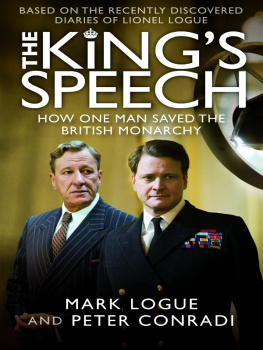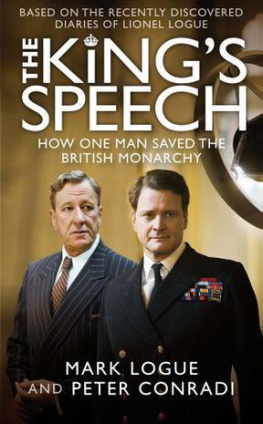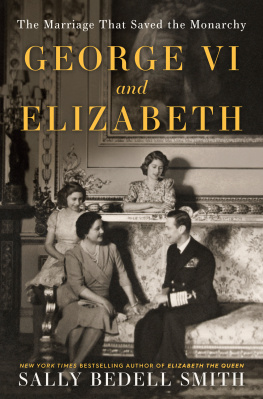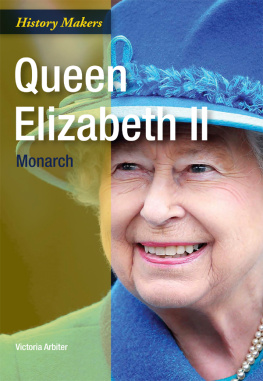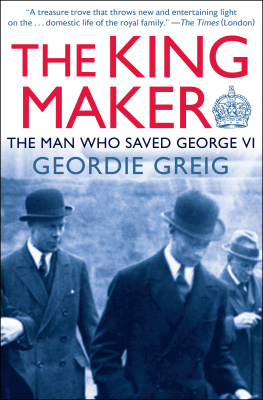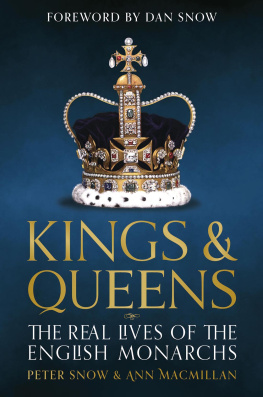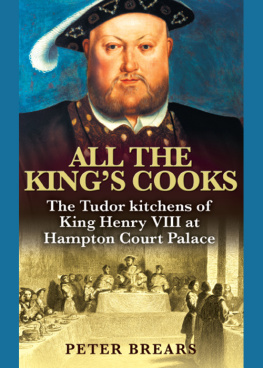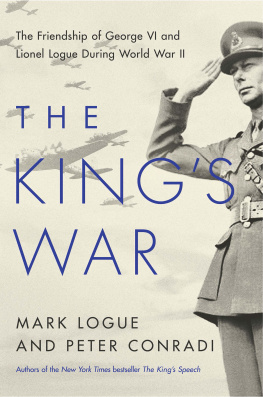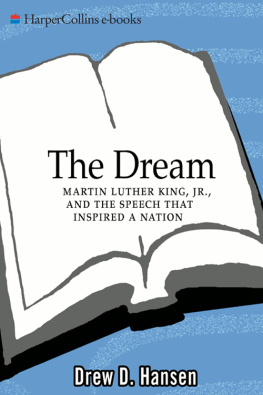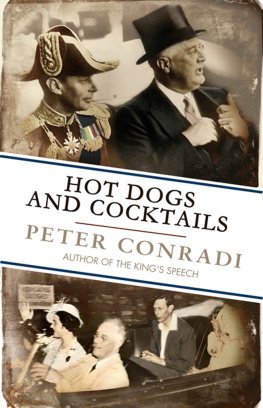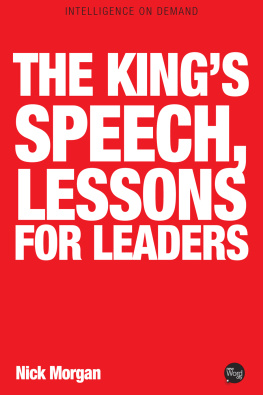
Mark Logue is the grandson of Lionel Logue. He is a film maker and the custodian of the Logue Archive. He lives in London. Peter Conradi is an author and journalist. He works for TheSunday Times and his last book was Hitlers Piano Player: TheRise and Fall of Ernst Hanfstaengl.
THE
KINGS
SPEECH
Mark Logue and Peter Conradi

STERLING and the distinctive Sterling logo are registered trademarks of Sterling Publishing Co., Inc.
2 4 6 8 10 9 7 5 3 1
Published in the United States of America in 2010
by Sterling Publishing Co., Inc.
387 Park Avenue South, New York, NY 10016
Copyright 2010 Mark Logue and Peter Conradi
First published in Great Britain in 2010 by Quercus
21 Bloomsbury Square, London WC1A 2NS
Every effort has been made to contact copyright holders of the material reproduced in this book. If any have been inadvertently overlooked, the publishers will be pleased to make restitution at the earliest opportunity.
Text and plates designed by Helen Ewing
PICTURE CREDITS
All images courtesy Logue family archive except:
PLATE SECTION
, top courtesy Prince Alfred College school archives, bottom courtesy of Alex Marshall, Logue family archive; bottom Daily Express; Trinity Mirror / Mirrorpix / Alamy; all images courtesy of Alex Marshall, Logue family archive; all images courtesy of Alex Marshall, Logue family archive; all images courtesy of Alex Marshall, Logue family archive; top Sunday Express, bottom Sunday Pictorial
INTEGRATED IMAGES
Scottish Dm / Rex Features
Printed in the United States of America
All rights reserved
Sterling ISBN 978-1-4027-8676-1
For information about custom editions, special sales, premium and corporate purchases, please contact Sterling Special Sales Department at 800-805-5489 or specialsales@sterlingpublishing.com.
Contents
F irstly, I owe an enormous debt of gratitude to Peter Conradi. If it wasnt for his unflinching determination in the face of a daunting schedule, this book may never have existed.
I would like to thank my extended family, especially Alex Marshall, whose discovery of a treasure trove of letters led to a more profound understanding of Lionels life and work. Anne Logue for her recollections, Sarah Logue for her time and Patrick and Nickie Logue for their help in looking after the archive. Also my lovely wife Ruth and our children for allowing this project to take over our lives for a year. Without their support this book would never have happened.
Thanks also to Caroline Bowen for answering so many questions about speech therapy, and who was pivotal in putting the films producers in touch with the Logue family, and starting the ball rolling. Francesca Budd for her help in transcribing the archive and her support throughout the filming process. All involved in the film, Tom Hooper, David Seidler, Colin Firth, Geoffrey Rush and everyone at See-Saw Films, especially Iain Canning.
Jenny Savill at Andrew Nurnberg Associates was central in getting the book published.
Id also like to thank Meredith Hooper for some illuminating facts, Michael Thornton for letting us publish his accounts of Evelyn Laye, Neil Urbino, whose genealogy work helped dig deeper, Marista Leishman for her help with the Reith diaries, and David J Radcliffe for his own account of his fight with a stammer.
Margaret Hosking and The University of Adelaide and Susanne Dowling at Murdoch University were an enormous help in digging out library material.
Thanks also to Tony Aldous, school archivist at Prince Alfred College, Peta Madalena, archivist at Scotch College and Lyn Williams at Lion Nathan. The Royal College of Speech and Language Therapists were extremely helpful, especially Robin Matheou.
Finally, thanks to the National Library of Australia, the State Library of South Australia and the State Library of Western Australia, the Australian Dictionary of Biography and the National Portrait Gallery, London.
W hen I was growing up in the 1970s and 1980s we lived in Belgium, where my father, Antony, worked as a lawyer at the European headquarters of Procter & Gamble. Over the years we moved between various houses on the outskirts of Brussels, but there was one constant: regardless of where we were, a collection of photographs and mementos would be set up on a mantelpiece or windowsill.
Among them was a photograph of my father in his Scots Guards uniform; another of him and my mother, Elizabeth, on their wedding day in 1953, and a picture of my Australian-born paternal grandfather, Lionel, and his wife, Myrtle. Also, more intriguingly, there was a leather-framed portrait of King George VI, the father of the present Queen, signed and dated 12 May 1937, the day of his coronation; another picture of him and his wife, Elizabeth, better known to my generation as the Queen Mother, and their two daughters, the future Queen Elizabeth, then a girl of eleven, and her little sister, Margaret Rose; and a third of the royal couple, dated 1928, when they were still the Duke and Duchess of York, signed Elizabeth and Albert.
The significance of all these photographs must have been explained to me, but as a young boy I never paid too much attention. I understood the link with royalty was through Lionel, but he was ancient history to me; he had died in 1953, twelve years before I was born. The sum of my knowledge about my grandfather was that he had been the Kings speech therapist whatever that was and I left it at that. I never asked any more questions and no more detailed information was volunteered. I was far more interested in the various medals and buttons laid out alongside the photographs. I used particularly to enjoy dressing up in my fathers officers belt and hat, and playing at soldiers with the medals pinned proudly on my shirt.
But as I grew older, and had children of my own, I began to wonder about who my ancestors were and where they had come from. The growing general interest in genealogy further piqued my curiosity. Looking back through the family tree, I came across a great-grandmother from Melbourne who had fourteen children, only seven of whom survived beyond infancy. I also learnt that my great-great-grandfather left Ireland for Australia in 1850 aboard the SS Boyne.
As far as I was concerned, my grandfather was only one among many members of an extended family divided between Australia, Ireland and Britain. That remained the case even after the death of my father in 2001, when I was left the task of going through the personal papers he had kept in a tall grey filing cabinet. There, among the wills, deeds and other important documents, were hundreds of old letters and photographs collected by my grandfather all neatly filed away in chronological order in a document wallet.
It was only in June 2009, when I was approached by Iain Canning, who was producing a film, The Kings Speech, about Lionel, that I began to understand the significance of the role played by my grandfather: about how he had helped the then Duke of York, who reluctantly became King in December 1936 after the abdication of his elder brother, Edward VIII, in his lifelong battle against a chronic stammer that turned every public speech or radio broadcast into a terrifying ordeal. I began to appreciate that his life and work could be of interest to a far wider audience beyond my own family.
That April, Lionel had been the subject of the Afternoon Play on BBC Radio 4, again called
Next page
